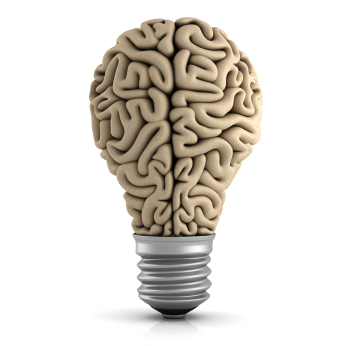Published: November 9, 2011

© istockphoto
ntelligence and smart thinking are not the same, according to
University of Texas at Austin psychologist
Art Markman, who studies how best to apply knowledge for smarter thinking at work and home.
Drawing on his work at a top multinational corporation and his scholarly work, Markman says science confirms that smart thinking is not an innate quality but rather a skill to be cultivated. Humans are not born with a particular capacity to do smart things. “Each of the components of being smart is already part of your mental toolbox,” he says.
In his forthcoming book “Smart Thinking,” (Perigee Books, January 2012) Markman distills for readers the information he accumulated over six years of teaching Procter & Gamble employees how to become more effective problem solvers and his decades of cognitive psychological research. In the forward, Craig Wynett, the chief learning officer for Procter & Gamble, and Dr. Mehmet Oz praise Markman for writing such a mix of “leading-edge science” and “news you can use.” [continue reading…]
Published: February 23, 2011
Consider the question “Can Machines think”?
Turing Test—an annual battle between the world’s most advanced artificial-intelligence programs and ordinary people. The objective? To find out whether a computer can act “more human” than a person. Brian Christian write in The Atlantic about his own quest to beat the machines, where discovers that the march of technology isn’t just changing how we live, it’s raising new questions about what it means to be human.We forget how impressive we are. Computers are reminding us.
As computers have mastered rarefied domains once thought to be uniquely human, they simultaneously have failed to master the ground-floor basics of the human experience—spatial orientation, object recognition, natural language, adaptive goal-setting—and in so doing, have shown us how impressive, computationally and otherwise, such minute-to-minute fundamentals truly are.
Curious? Link to read more
Source: The Atlantic
Published: November 1, 2010
The 12 Pillars of Wisdom is series of 12 cognitive tasks which will test your planning, reasoning, working memory and attentional abilities to the limit. Brought to you by Cambridge Brain Sciences in collaboration with New Scientist and the Discovery Channel.
What makes you smart? Neuroscientist Adrian Owen reveals the 12 pillars of wisdom – and New Scientist invites you to take the ultimate intelligence test.
THERE are few more controversial areas of science than the study of intelligence. Its history is littered with disreputable ideas, from phrenology and other pseudoscientific ways of measuring it to flawed attempts to link it to race. Today intelligence remains contentious, not least because there is still no agreement on precisely what the word means.
Curious? Continue reading
Source: The New Scientist
Published: September 16, 2009
 Reading a book by Franz Kafka –– or watching a film by director David Lynch –– could make you smarter!
Reading a book by Franz Kafka –– or watching a film by director David Lynch –– could make you smarter!
According to research by psychologists at UC Santa Barbara and the University of British Columbia, exposure to the surrealism in, say, Kafka’s “The Country Doctor” or Lynch’s “Blue Velvet” enhances the cognitive mechanisms that oversee implicit learning functions. The researchers’ findings appear in an article published in the September issue of the journal Psychological Science. [continue reading…]


